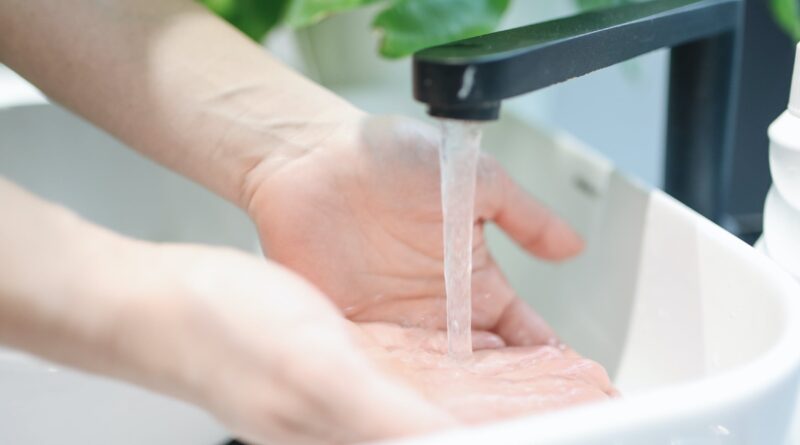When and how should we wash our hands?
We all know how important the washing of hands is, but have we thought about the right way? When and how should we wash our hands?
97% of cases fail to wash their hands properly. The calculation was made on the basis of a new study that explored 383 volunteers about their kitchen habits.
Most of them have washed their hands for a shorter period of 20 seconds. This is the minimum recommended by the Center for Disease Control and Prevention. Many have failed to dry their hands as well as hygiene habits for cleaning utensils and appliances with which they have contact.
Volunteers also participated in the cooking and processing of raw meats. Violation of basic rules in the washing of hands has contributed to the spread of potentially dangerous microbes and the spices and vessels used in the preparation of meat.
Based on the study, it is concluded that people who do not wash their hands in the right way, risk spreading harmful microbes to everything they touch. And these bacteria are a prerequisite for respiratory infections and gastrointestinal diseases. Intestinal infections can be dangerous and lead to serious consequences such as dehydration and a rise in temperature.
Fortunately, the rules for proper handwashing are not so complicated. The biggest change that is recommended is to invest more time in this action. Of great importance is the use of soap, as well as drying. It must be done with a clean and dry towel. The bacteria are more likely to be found on wet towels and those used for more than one purpose, such as wiping utensils and hand dryers.
A study has found that 49 of 100 tested wipes have shown growth of bacteria that are usually found in or on the human body. This includes E. coli and Staphylococcus aureus.
Proper handwashing is one of the easiest ways to avoid eating diseases, including the need for hospitalization. The most common diseases known as diseases of “dirty hands” include: Coronavirus, cholera, typhoid fever, hepatitis A, Desinteria, etc.
Soap or Antibacterial hand gel – which is better?
The need for good personal hygiene requires that we choose the best care for hand cleaning. It must meet two main conditions.
First-you need to effectively neutralize microbes, for quality infection prevention in the flu season. Second, it has to give minimum strain on the skin of the hands, which is already subjected to serious tests due to increase in washes.
In this line of thought, the choice is mainly limited to two products – the use of soap or the new generation of hand cleaners – antibacterial gels.
Informed choice here requires to emphasize that a basic requirement of hand hygiene is to ensure protection from dangerous microorganisms. This includes both neutralizing them and their subsequent elimination. It is clear that everyone would prefer the convenience of gel, which we rub and does not require washing, but this does not guarantee the removal of microbes. In this aspect, the soap is more effective.
Advantages of soap in front of antibacterial hand gel
A major advantage of soap is its complex action in several directions:
The composition of most soaps has been proven to be effective in destroying the capsule shell of the influenza virus, including most bacteria.
Washing with soap and water not only removes microbes, but also cleans hands from dirt, which can shelter and keep dangerous microbes.
It is proved that soapy water binds, neutralizes and removes some dangerous compounds, against which antibacterial gels are ineffective-pesticides, herbicides, etc. Chemicals
In addition to these advantages of soap, antibacterial gels have one more disadvantage. Most of them contain alcohol, which dries out irritating skin of the hands and with regular use can dry it excessively. Types of antibacterial gels that are free of alcohol do not guarantee quality protection from microbes.
Experts mention the undeniable benefits of antibacterial gels for disinfection, but emphasize that they are easier to apply for cleaning surfaces in hospitals and for disinfection of hands, when this is required very often or when we do not have access to water. In other cases, the most effective and qualitative cleaning of the hands can be achieved by washing them with soap and water.





